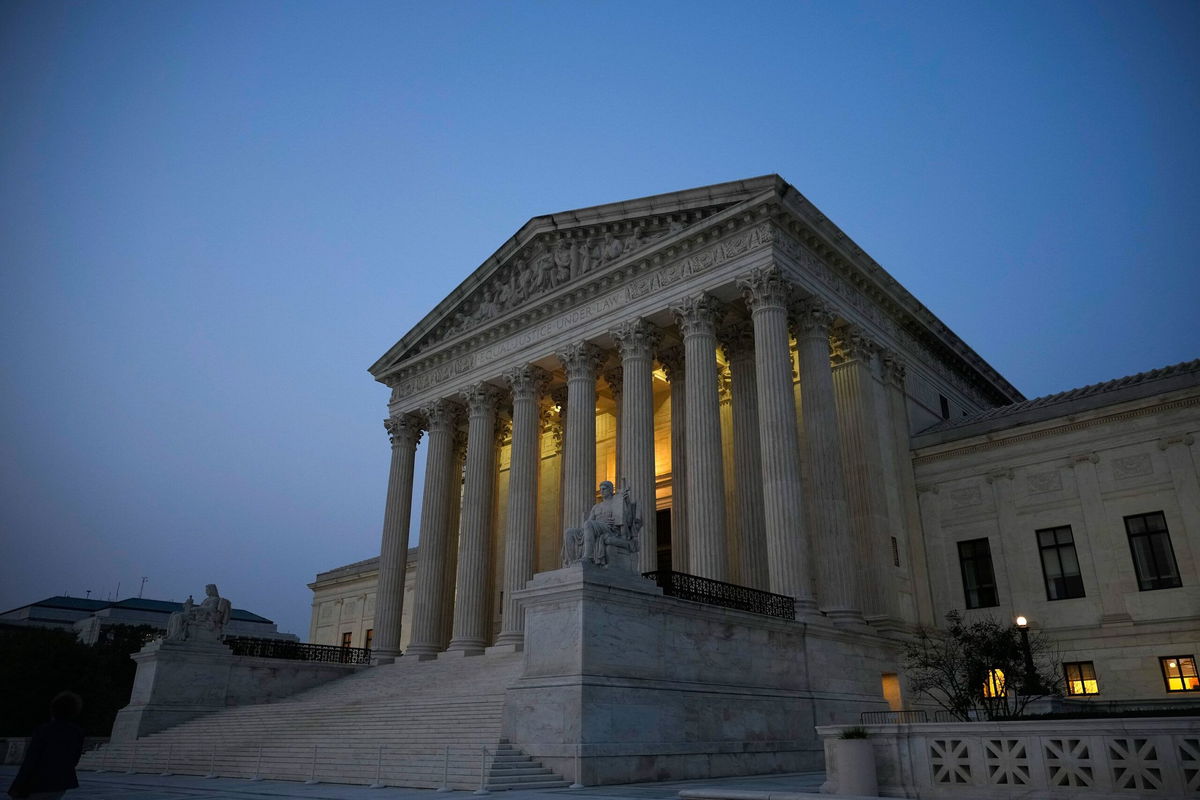Supreme Court rules against Tulsa in case over Native American man’s speeding ticket

The U.S. Supreme Court is shown at dusk on June 28 in Washington
By Ariane de Vogue, CNN Supreme Court Reporter
(CNN) — The Supreme Court on Friday denied a request from the city of Tulsa, Oklahoma, to freeze a lower court opinion that could prevent Tulsa from enforcing municipal laws – such as speeding tickets – against Native Americans.
Justice Brett Kavanaugh and Justice Samuel Alito wrote separately, however, to emphasize that the lawsuit is ongoing and the appeals court involved in the case has not issued a final opinion.
“Nothing in the decision of the Court of Appeals prohibits the City from continuing to enforce its municipal laws against all persons, including Indians, as the litigation progresses,” Kavanaugh wrote.
The decision means that while Tulsa lost its first bid at the Supreme Court, it can bring up new arguments in the lower courts and might still ultimately prevail.
After the court’s order came down, lawyers for the city of Tulsa issued a statement.
“As indicated by the Justices, the City will continue to seek clarification of these important legal issues with the District Court and, in the meantime, continue to enforce City ordinances against all persons within the City of Tulsa regardless of Indian status,” the statement read.
The lawyers said the city “will also continue to work cooperatively with our tribal partners to protect the health and safety of our shared constituents.”
The case began in 2018 when Justin Hooper, a member of the Choctaw nation, was ticketed for a speeding violation in the City of Tulsa. He paid the fine, but after the Supreme Court issued a 2020 opinion called McGirt v. Oklahoma, he returned to court seeking post-conviction relief.
He noted the justices found that the Muscogee Reservation had never been formally disestablished, which meant that large swaths of the state were still Native country. Hooper’s lawyers argued that the municipal court lacked jurisdiction over his offense because the crime was committed by a Native American in Native country.
The dispute is the latest to ricochet through the courts after the McGirt decision raised numerous questions, including the one central to the case at hand: whether municipal ordinances apply to Native Americans.
In 2022, the court cut back on the scope of McGirt when it ruled that states have the authority to prosecute non-tribal members who commit crimes against Native Americans on Native territory. Court experts noted that Justice Amy Coney Barrett’s vote was essential in that case because she replaced Ruth Bader Ginsburg, who would have likely sided with the tribes.
Lawyers for Tulsa argued that the city has jurisdiction under the Curtis Act of 1898, which grants Tulsa jurisdiction over municipal violations committed by all of Tulsa’s inhabitants. They urged the Supreme Court to put the decision by the US Court of Appeals for the 10th Circuit on hold because it creates a “potentially dangerous situation for the citizens of Tulsa and other similar municipalities.”
“Inhabitants of these cities are now subject to areas where the laws enacted for the protection of the health and safety of its residents are only enforceable by the City against some citizens but not others,” the lawyers told the high court and noted that the “perceived lack of Municipal Court jurisdiction has already caused Indian residents to challenge and confront Tulsa police officers at traffic stops.”
The federal appeals court held the Curtis Act was valid when Tulsa was a part of Native territory but that the jurisdiction ended after the city became part of the new State of Oklahoma. It sent the case back to the district court for further deliberations.
Gov. Kevin Stitt, a Republican, called the 10th Circuit decision “devastating” in a statement.
“We must operate under one set of rules, regardless of face, heritage or background, and cannot allow Tulsa and much of the rest of eastern Oklahoma to be turned into a reservation,” he said.
The-CNN-Wire
™ & © 2023 Cable News Network, Inc., a Warner Bros. Discovery Company. All rights reserved.